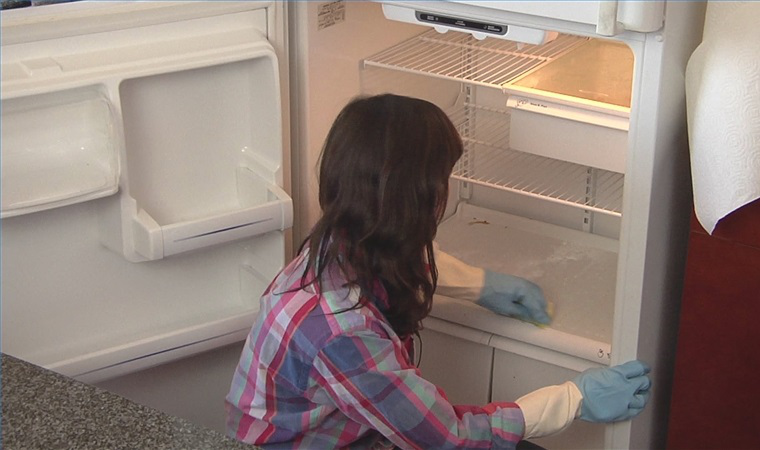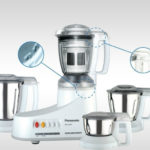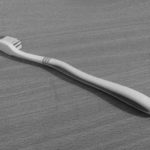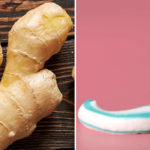In the scorching heat of summer, the refrigerator becomes one of the essential appliances in the household. Everyone wants to keep fruits, drinks, food, etc. in the refrigerator to keep them fresh and cool when eaten. However, if used excessively and improperly, using the refrigerator in summer can easily cause diseases for users, especially those related to respiratory and digestive systems.
Due to the weakened digestive function of humans in the summer, excessive use of refrigerated products can easily damage the gastric mucosa, affecting the digestion and absorption process.
Although the refrigerator can inhibit the activity of most bacteria, there are still some bacteria that can survive and multiply at low temperatures, “cling” to food. If used or processed food improperly, it is easy for these harmful bacteria to enter the body and cause a series of infections. In severe cases, it can even lead to death, especially in the elderly and children with weakened immunity.
4 common refrigeration-related illnesses in summer
1. Intestinal inflammation
Although the temperature in the freezer of the refrigerator is very low and can inhibit the growth of most bacteria, some types of cold-loving molds can still continue to grow. Consuming food with these bacteria can cause infections such as pharyngitis, diarrhea, abdominal pain, nausea, etc.
In particular, E. Coli bacteria can be found in some vegetable-growing soils often found in cold or frozen forms. If the food contaminated with these bacteria is put into the refrigerator without proper cleaning and then mixed with other foods, it can cause symptoms such as abdominal pain, diarrhea, vomiting, fever, and even death.
Additionally, there is a type of bacteria called Yersinia commonly found in pigs, livestock, and other animals. If the perishable food is not fully cooked and stored in the refrigerator, it can easily cause gastrointestinal diseases.

2. Pneumonia
If the refrigerator is not regularly cleaned, the evaporator or the condenser fan can easily produce various types of molds. People with allergies or children who inhale air containing these mold bacteria are prone to symptoms such as coughing, chest pain, chills, fever, and difficulty breathing.
3. Gastritis
In summer, many people frequently eat refrigerated foods, which greatly stimulates the digestive system, causing the blood vessels to constrict immediately, leading to a decrease in blood flow. If the digestive fluids cannot be secreted, over time it will lead to gastritis.
4. Headaches
The temperature of food taken out of the freezer of the refrigerator is usually -6 degrees Celsius, which is significantly different from the body’s temperature of about 37 degrees Celsius. The large temperature difference between the two, if immediately swallowed, can cause irritation to the oral mucosa, constrict blood vessels in the head area, and can lead to symptoms such as dizziness, headaches, and nausea.
Mistakes in using the refrigerator that can cause illnesses
1. Improper placement of food

Most people place food in the refrigerator wherever there is space available. However, doing so unintentionally creates conditions for disease-causing bacteria to multiply and cross-contaminate between types of food.
In fact, dividing the refrigerator compartment is not only to distinguish different temperature spaces but also to ensure the effectiveness of food preservation.
The shelves on the refrigerator door are suitable for storing foods with strong antibacterial properties such as pickles, fermented foods, jams, etc. Since the refrigerator door is frequently opened, this location is often affected by external air, which is not suitable for preserving perishable foods such as cooked meat or open bottles of milk.
The freezer compartment is suitable for storing cooked meats, smoked meats, yogurt, cheese, etc. The refrigerator compartment should store foods that can be easily heated, such as leftovers, boiled eggs, various vegetables, and fruits.
2. Ignoring the storage time
The refrigerator only postpones the spoilage of food but cannot completely kill all bacteria and keep food fresh indefinitely. Therefore, food should also have a certain storage time after being put into the refrigerator, and food that has been preserved for too long should not be used.
For example, fresh eggs can be preserved for 30-60 days, boiled eggs can be kept for 6-7 days. Ripe tomatoes can be kept for 12 days. Fish can be stored in the freezer for 90-180 days, and in the refrigerator compartment for 1-2 days. Various meats can be kept in the refrigerator compartment for 2-3 days and in the freezer for about 90 days.
3. Taking out food from the refrigerator and eating immediately
No matter how hot the weather is, you should not take food from the refrigerator and consume it immediately. At the same time, you should not eat too much when sweating. Food should be thoroughly heated before eating to ensure safety and avoid the invasion of dangerous bacteria.
4. Not cleaning the refrigerator regularly

If you smell an unpleasant odor when opening the refrigerator, it may be a warning sign that bacteria are “invading.” Bacteria that can survive in frozen environments will continue to multiply and produce unpleasant-smelling gases such as trimethylamine, hydrogen sulfide, methyl mercaptan, methylamine, etc. A mixture of many harmful gases in the refrigerator will accelerate the spoilage of fresh ingredients in the refrigerator.
2 quick tips to eliminate refrigerator odors:
– Clean the inside of the refrigerator with a cloth soaked in vinegar. This not only eliminates odors but also disinfects.
– Place a piece of pineapple or ginger in a corner of the refrigerator to eliminate odors.
Note: Do not use disinfectants or cleaning agents to clean the refrigerator. These disinfectants indirectly affect food hygiene and are dangerous to users. Additionally, the temperature of the refrigerator should ensure that the temperature in the refrigerator compartment is around 4 degrees Celsius and the freezer compartment is around -18 degrees Celsius.
Source: Trí Thức Trẻ














